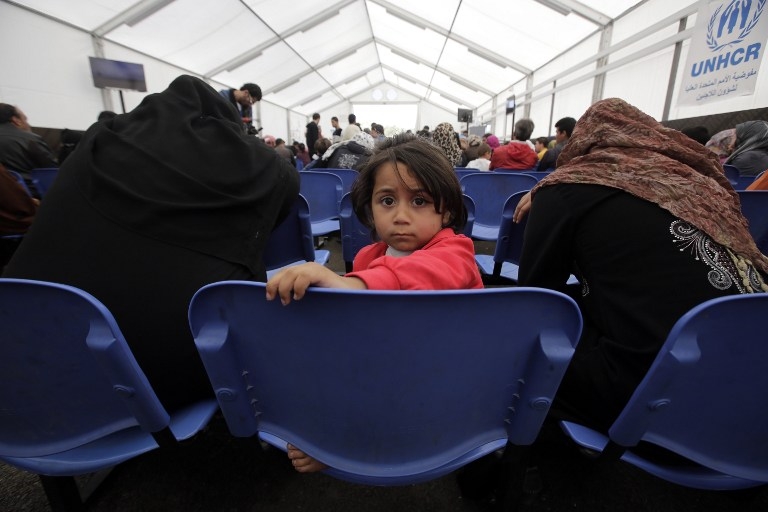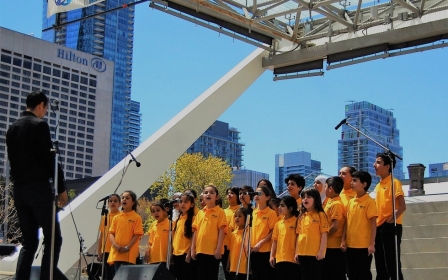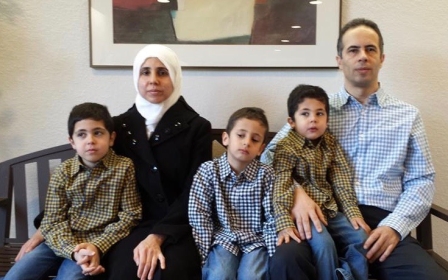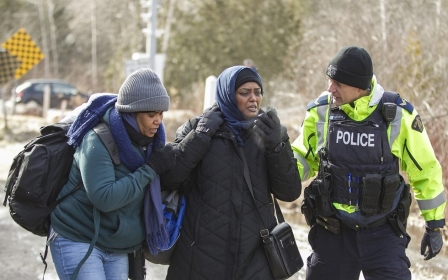A need for protection: Canada eases asylum process for more refugees

TORONTO, Canada – Asylum seekers from Yemen and Egypt will soon be able to have their claims processed without a formal hearing, after an amendment to the expedited processing list formally comes into force on Thursday.
Ottawa announced in early May that it would allow nationals from four foreign countries – Egypt, Yemen, Afghanistan and Burundi – to have access to an expedited process when applying for refugee or protected person status in Canada.
On 1 June, the four countries will join a list that already includes Syria, Iraq and Eritrea.
The expedited country list aims to recognise that conditions in certain countries, including but not limited to armed conflict, may “require a faster processing” time, explained Petra Molnar, a migration researcher.
“The idea is to recognise that you’re going to have very similar practical circumstances, and it’s to ease the burden on the Immigration and Refugee Protection division who hears these claims,” Molnar told Middle East Eye.
The overall acceptance rate at the Refugee Protection Division last year was 62 percent
The Refugee Protection Division operates within the Immigration and Refugee Board of Canada (IRB), an administrative body that hears and renders decisions on claims for refugee protection and other immigration issues.
But Molnar explained that having access to the expedited process does not mean an asylum seeker does not need to prove a need for protection in Canada.
Claimants must still provide information to back their demand for refugee status in Canada, and some may be invited to a smaller hearing, or receive a request for additional documents.
A hearing may also still be ordered, despite the fact that a claimant comes from one of the designated countries. “It’s an expedited process, but it doesn’t necessarily mean that there will not be a hearing,” Molnar said.
Why Egypt and Yemen?
According to Ottawa, the four countries were added to the list based on high acceptance rates for claims in 2016, a large volume of cases, and “review of common claim types and issues relating to claims from these countries”.
Individuals can make a claim for refugee or protected person status at a Canadian port of entry (an airport), if they are detained inside Canada, or at an Immigration, Refugees and Citizenship Canada office. That status would then lead to permanent residency in Canada.
In the case of Egyptian and Yemeni nationals, this means claimants would have to hold at least a tourist visa to fly to Canada, or hold another type of immigration status (work or student visas, for example) in the country when they make their claims.
“The expedited process is a case management process which allows decision makers to decide a claim without a hearing if certain criteria are met, including ensuring that matters related to security and integrity are satisfied,” said Anna Pape, a senior communications advisor at the IRB.
The overall acceptance rate at the Refugee Protection Division last year was 62 percent, Pape told MEE in an email.
IRB statistics show that of the 197 cases from Yemen that were decided last year, 89 percent (160 cases) of the applications for status were accepted. In 2015, the acceptance rate was 96 percent.
Last year, of 223 finalised claims made by Egyptian nationals, 85 percent (189 cases) were accepted. A year earlier, in 2015, 86 percent of cases were accepted.
A need for protection
It remains unclear why Ottawa added these countries to the expedited list now.
“We don’t really know what the motivating factor is, other than the increasing violence and increasing number of claims from these countries,” Molnar said. “That’s the catalyst, but beyond that, I’m not sure.”
Yemen has been embroiled in a deadly, civil war since 2015. An international coalition led by Saudi Arabia, which is fighting Houthi rebels, has launched aerial bombardments that have struck hospitals, schools, and other civilian areas across the country. At least 10,000 Yemenis have been killed and tens of thousands have been injured.
About 19 million of Yemen’s 28 million people are in need of humanitarian aid, according to Reuters, and many are on the brink of famine. The country is also struggling to stem a cholera outbreak, which has killed almost 500 people to date.
Meanwhile, in Egypt, President Abdel Fattah al-Sisi has clamped down on any perceived opposition, especially members of the outlawed Muslim Brotherhood, and jailed human rights workers, journalists, and other civil society leaders.
Members of Egypt’s Coptic Christian minority have also been attacked by militants in several incidents in recent weeks. At least 26 people were killed when gunmen opened fire on a bus carrying Coptic Christians south of Cairo last week.
Two suicide bombings also killed at least 45 people at Coptic churches in Alexandria and Tanta in April. The Islamic State group claimed responsibility for those attacks.
Molnar said that in accordance with the UN Convention on Refugees, to which Canada is a signatory, claimants must prove that they face persecution in their home countries, either personally or by association to a particular group, based on race, religion, nationality, social group, or political opinion.
“You basically have to show the state is unable or unwilling to protect you,” she said.
Middle East Eye propose une couverture et une analyse indépendantes et incomparables du Moyen-Orient, de l’Afrique du Nord et d’autres régions du monde. Pour en savoir plus sur la reprise de ce contenu et les frais qui s’appliquent, veuillez remplir ce formulaire [en anglais]. Pour en savoir plus sur MEE, cliquez ici [en anglais].




